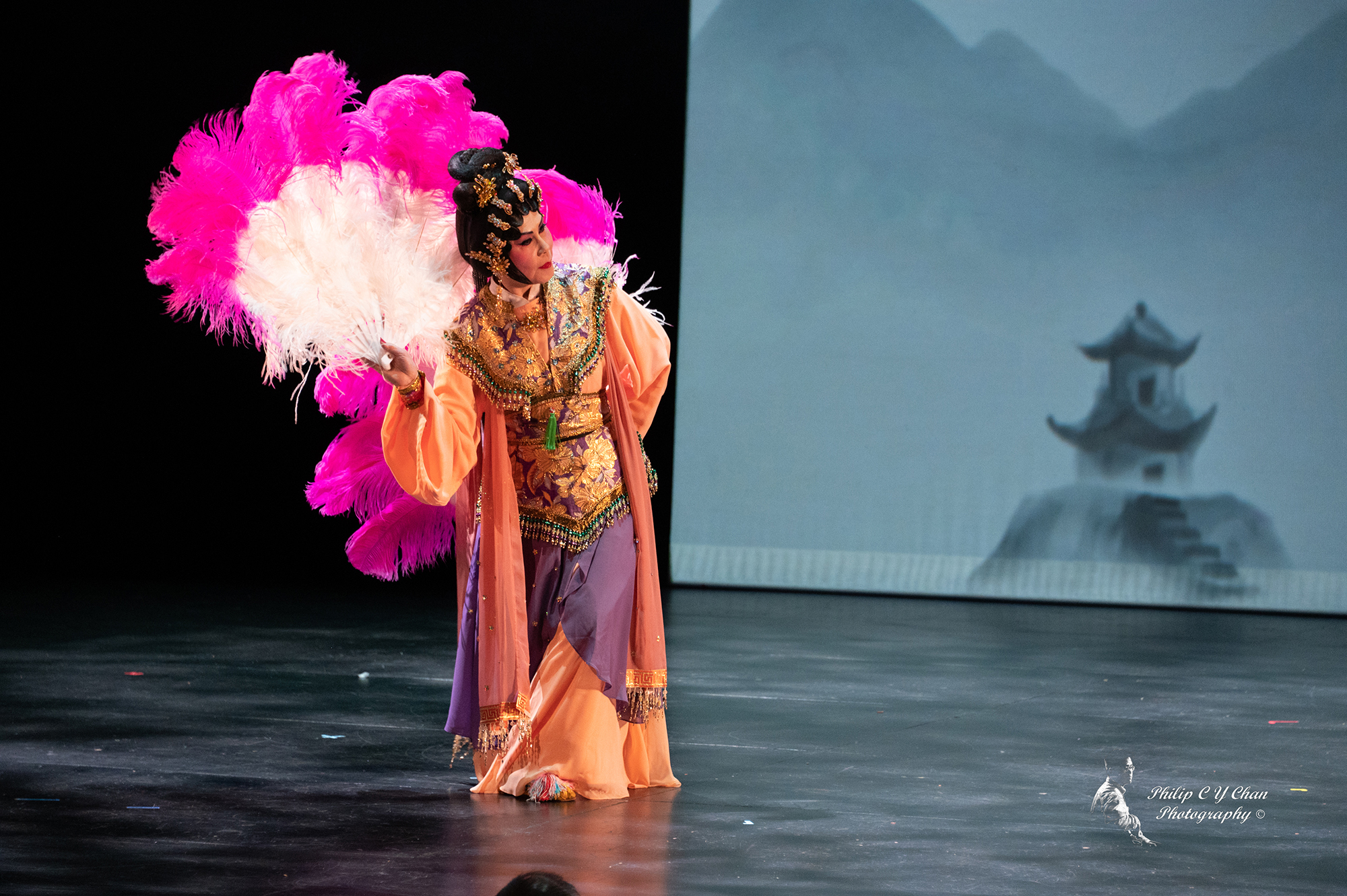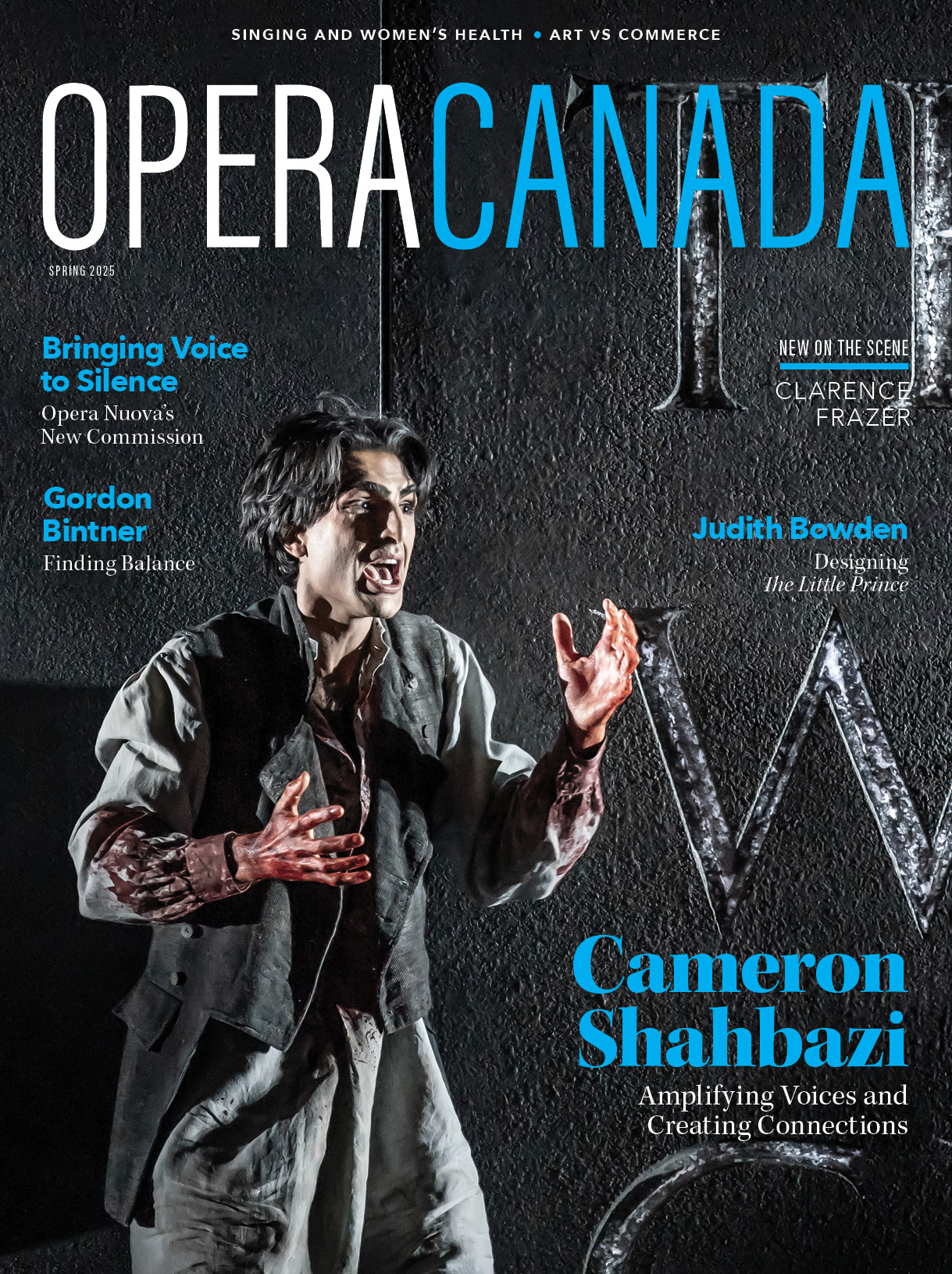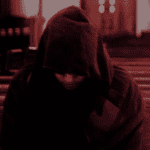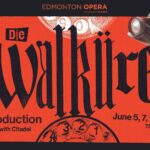Vancouver Cantonese Opera’s The Prop Master’s Dream is part musical fusion experiment, part educational exercise and part fevered reverie of forgotten histories of the West Coast.
A second iteration after the opera’s debut in 2022 at the Orpheum Annex, the production at the Vancouver Playhouse has benefitted from further funding from the Canada Council for the Arts and the City of Vancouver. The new production, that wrapped on the weekend, was a slicker one with amplified production values – notably more sophisticated use of archival film and photography. Yet it was still full of the same heart and community spirit that spawned its inception.
Born of a meeting in Vancouver between Cantonese opera singer and VCO’s artistic director Rosa Cheng and a man named Wah-Kwan Gwan, the opera, penned by Cheng, tells Wah-Kwan’s extraordinary life story.
Wah-Kwan was born in 1929 – just six years after the head tax was abolished. He was the offspring of a Chinese father who met his Indigenous mother when he was doing hard labour in the interior of BC. In frail health after years of difficult working conditions, his father took his son back to China, abandoning his wife and daughter – a sister of Wah-Kwan – and leaving them in precarious circumstances. At the time, under the Indian Act passed in 1876, Native women who married non-Indians lost their status.
The tragic story continued when Gwan, as the father was called, died and left young Wah-Kwan with his impoverished widow, who lacked the means to care of him. Happily, a childless couple of Cantonese opera performers adopted Wah-Kwan and raised him as their own, teaching him the art of Chinese opera. When he came of age, he decided to return to Vancouver in search of his birth mother.
The opera, whose English songs were composed by Peter Tam and has Cantonese music and libretto by Leo Lee, also includes some Indigenous songs and prayers developed in consultation with Stolo elders Johnny William Shaw and Eddie Gardner. It also features original hip-hop by Chinese Canadian rapper Gerry Sung, who acts as a kind of one-man Greek chorus summarizing the plotline after each of the opera’s five acts.
While the opera is billed as “bilingual,” it is mainly sung in Cantonese, with English subtitles, and much of the music is in the style of traditional Cantonese opera.
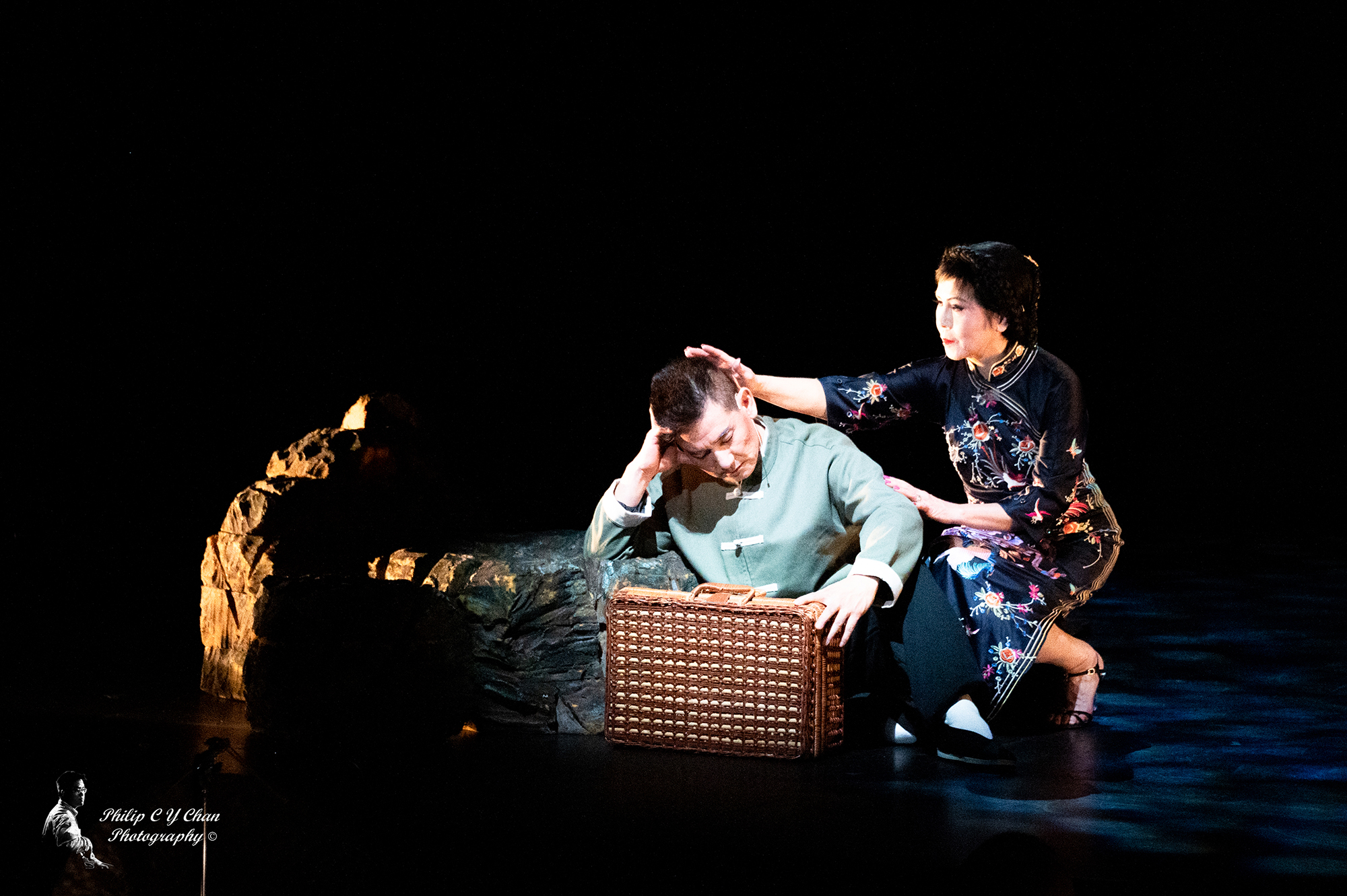
Photo Credit: Philip CY Chan Photography
Wah-Kwan (Jacky Lam) asleep and dreaming of his adoptive mother (Rosa Cheng)
The main exception is in the first act, The Departure, where Cheri Maracle (of Mohawk and Irish descent) sings poignantly of her plight and begs her husband to stay in Canada. Her songs in English – with a vaguely Andrew Lloyd Webber vibe emanating from the compositions by Peter Tam – are performed with great pathos and blend nicely with the replies of her husband, played by David WS Tam in Cantonese opera style.
One of the opera’s most moving moments is when Maracle sings a Stolo prayer of protection for her infant son as she hands him to Phoenix (played masterfully by Cheng) the Chinese opera star visiting Vancouver who agrees to bring Wah-Kwan and his father back to China with the troupe.
The highlight of the second act, The Adoption, set in China, are the scenes of traditional Chinese opera performance by Cheng and David C Tam, who plays her husband and Wah-Kwan’s adoptive father, with gorgeous costumes and lush sets. It’s a credit to all involved in the production that they manage to both celebrate an ancient art form and bring fresh life to it with an original cross-cultural libretto.
The third act, A Fish Out of Water, introduces the talented and rising Cantonese opera star Jacky Lam as a youthful Wah-Kwan, who performs a few acrobatic feats and impressive arias before learning of his true origins and angrily running away to jump a ship to Vancouver in search of his elusive birth mother.
The fourth act, the Pacific Crossing, makes good use of projection designer Anthony Lee’s artful filmic interventions, especially in the final scene when Wah-Kwan and his fellow stowaway set the kitchen on fire to evade the villainous chef (well played by David WS Tam, who like many in the production have double roles) who has stolen their belongings.
Act Five, Saltwater City, uses excellent archival footage of Vancouver’s post-war Chinatown to recreate the day the young stowaways arrive – auspiciously on Chinese New Year complete with parades and Chinese dragons. Here, too, a chance meeting between Wah-Kwan and his birth mother offers another opportunity for Peter Tam’s music and English lyrics to take a poignant turn, with a dream sequence in which both Wah-Kwan’s adoptive and natural mothers sing to him in Chinese and English respectively.
The last act, entitled A Final Reunion, sees Wah-Kwan, now a successful prop master at an opera company in Vancouver’s Chinatown, reunited with his adoptive mother, who arrives for a surprise visit. A happy ending all round – with lyrics extolling the virtues of filial duty – but for the absent Indigenous mother.
The audience is left to ponder her fate, and it might have been helpful to have had some more explanatory libretto about her story. In spite of several attempts to reach out to Wah-Kwan’s Indigenous relatives, none were found. Perhaps this could be the subject for the next soon-to-be-workshopped production of Vancouver Cantonese Opera, a company that has embraced both tradition and inter-cultural connections to produce a new world opera for our times.
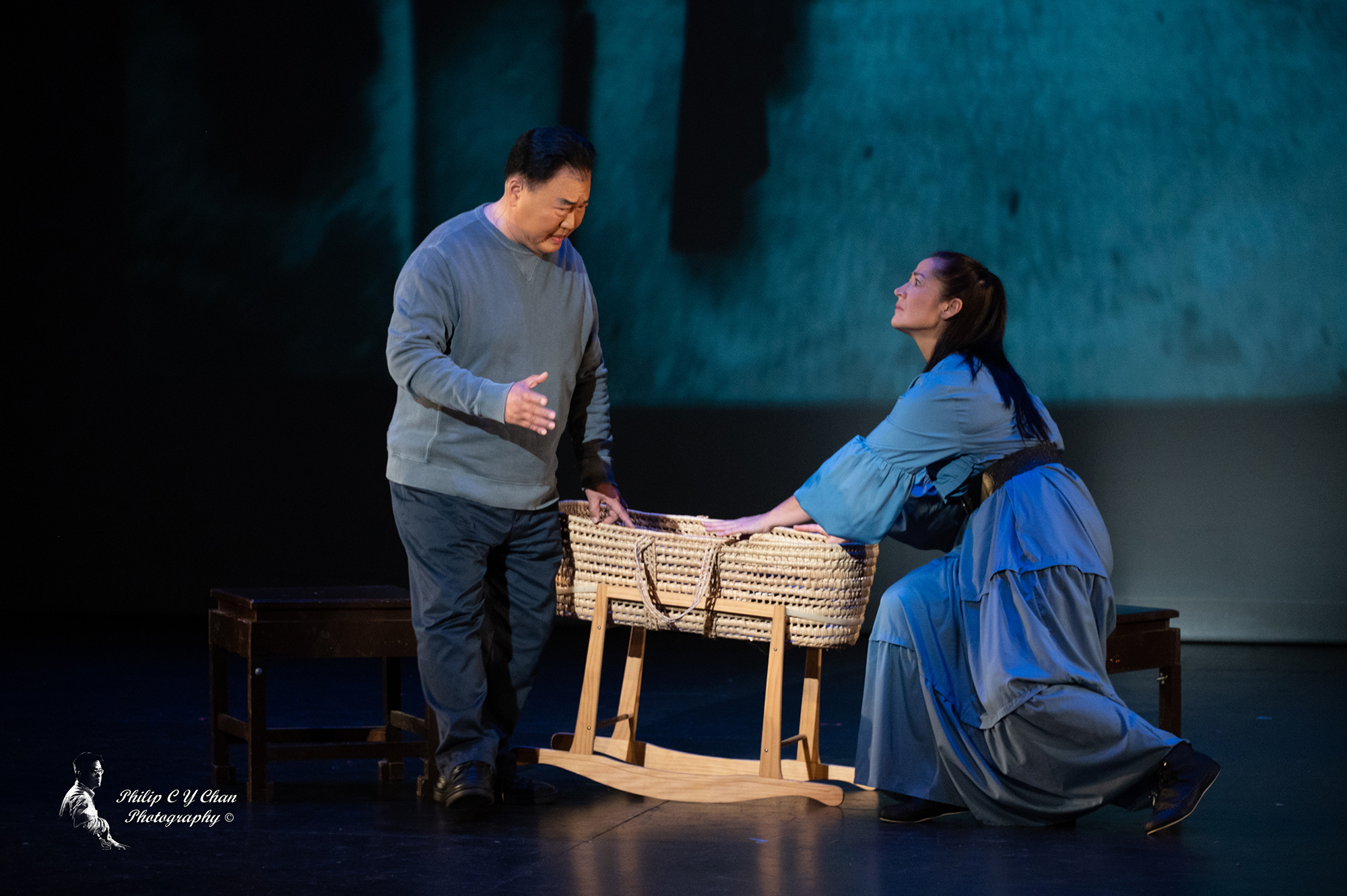
Photo Credit: Philip CY Chan Photography
David WS Tam and Cheri Maracle as the birth parents of Wah-Kwan
Opera Canada depends on the generous contributions of its supporters to bring readers outstanding, in-depth coverage of opera in Canada and beyond. Please consider subscribing or donating today.
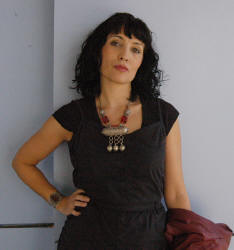
Hadani Ditmars has reviewed opera for the London Independent, the National Post and the Huffington Post. She is the author of Dancing in the No-Fly Zone, a critically acclaimed book that documented pre and post invasion culture in Iraq, and is at work on a new book using ancient sites as a narrative device to tell the story of contemporary culture in Iraq. She is developing a libretto based on her experiences in Iraq.
She has been writing about arts and culture internationally for three decades and her work has been published in the New York Times, The Guardian, The San Francisco Chronicle, Haaretz and the Globe and Mail and broadcast on CBC, BBC and RTE.

